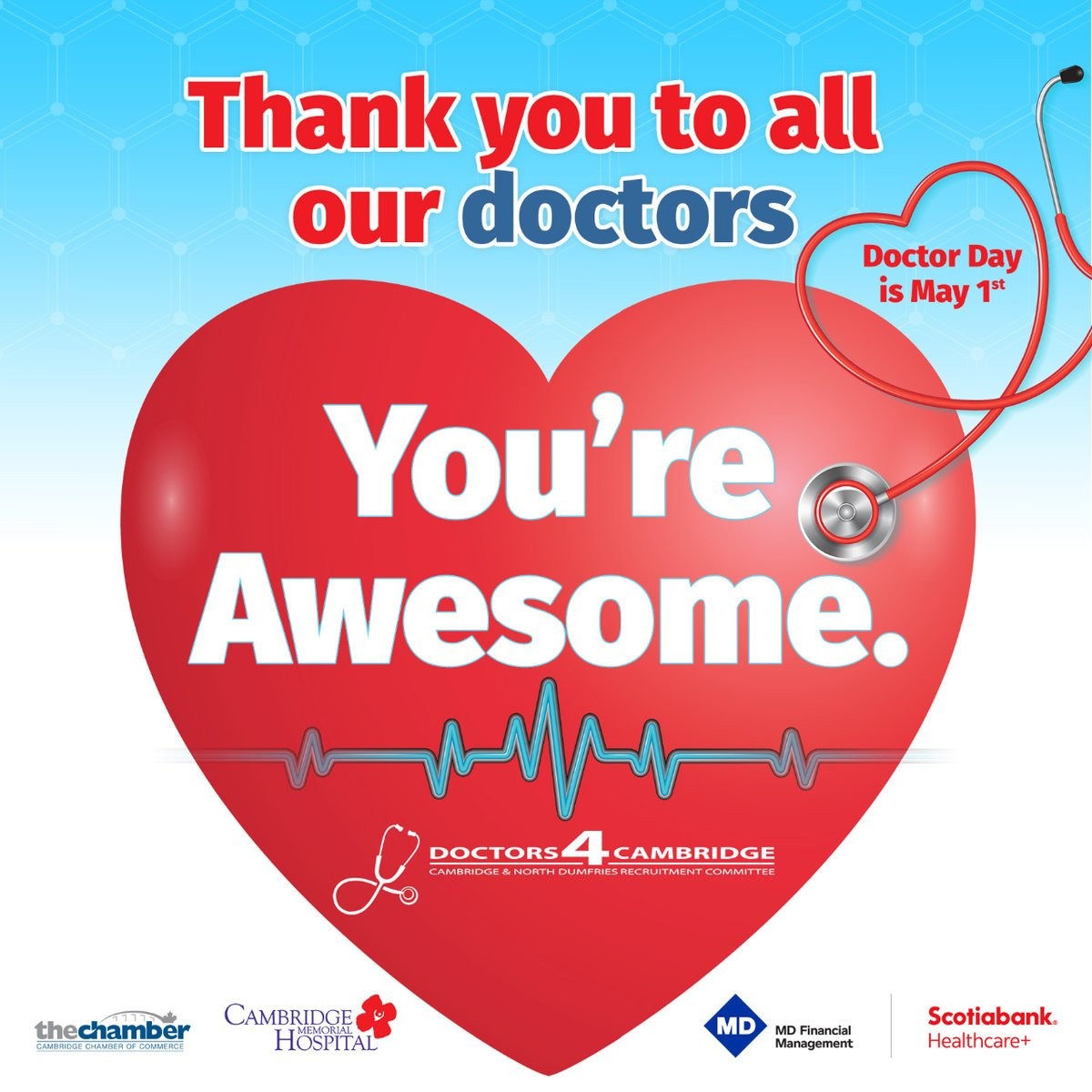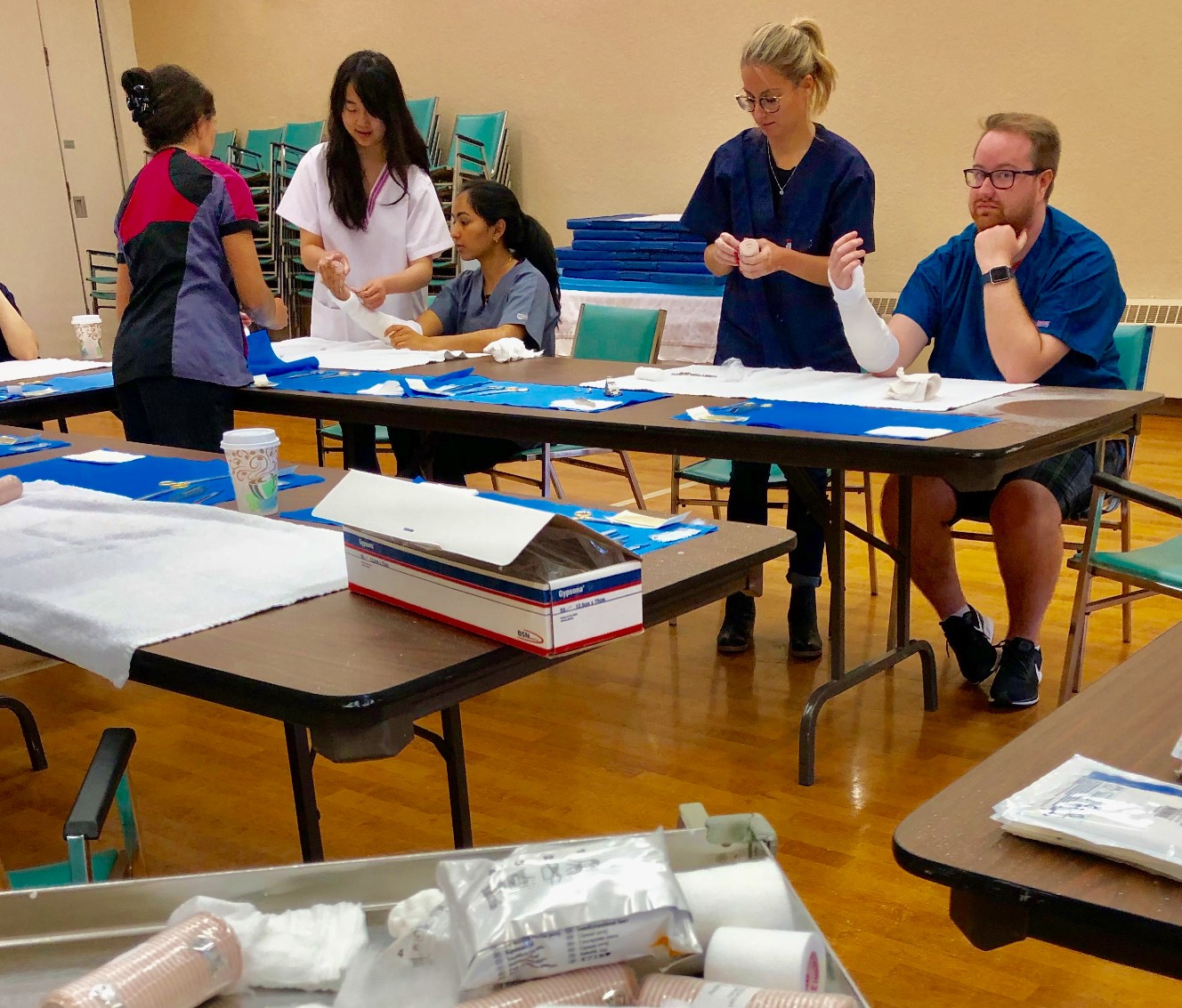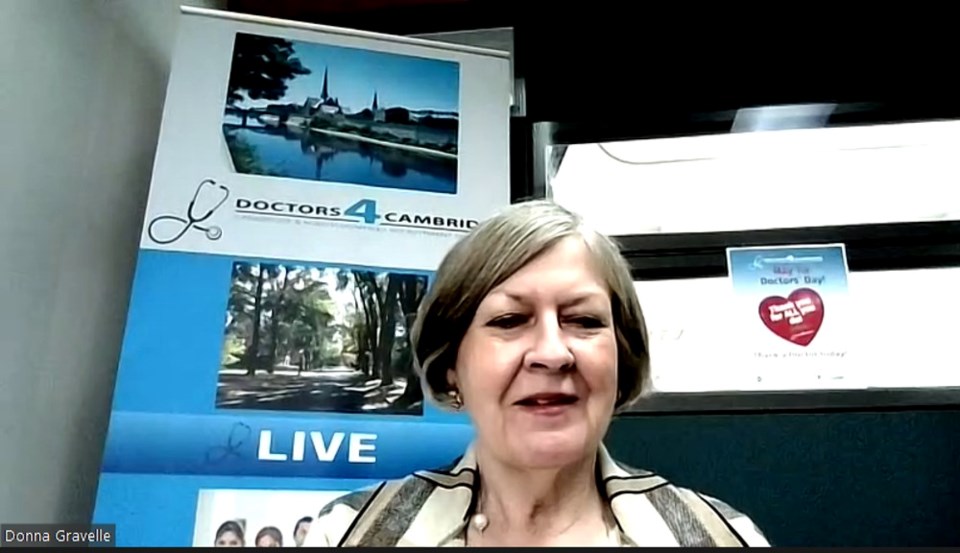Three years after the start of the pandemic and in the midst of a shortage of doctors across Canada, Cambridge will dedicate May 1 to recognizing the often tireless work of hundreds of local doctors.
For more than ten years, Cambridge has celebrated Doctors' Day to highlight their important role in the community and their sacrifices in difficult times to keep residents healthy.
Ontario designated Doctors' Day on May 1 to mark the birthday of Dr. Emily Stowe, the first female physician to practice in Canada. She received her doctoral degree in 1867 and was admitted by the Toronto School of Medicine four years later.
This year's Doctors' Day celebration, organized annually by Doctors4Cambridge will also serve to encourage more students to choose a career in medicine, despite the ongoing challenges and burdens that have prompted many local doctors to retire.
“The balance is not there,” said physician recruitment coordinator with Doctors4Cambridge, Donna Gravelle, referring to the fact that more physicians are retiring than students are enrolling in a healthcare career.
“The problem now across the province and probably across the country is there's just not as many doctors available for a variety of reasons. The shortage of physicians has never stopped and it's even worse now,” Gravelle added in an interview with Cambridge Today.
After working 12 years as a recruitment coordinator for the organization dedicated to attracting more doctors to Cambridge and North Dumfries, Gravelle explained that it was normal for some doctors to retire but “we are having more retirements than we typically would have in a year, and especially after the pandemic.”
There are 90 physicians practicing in Cambridge, she said.
According to the Ontario Ministry of Health, Cambridge should have at least 120 doctors based on its population which means there is a shortage of about 30 doctors.

For Donna Gravelle, addressing the physician shortage involves many tasks, such as lessening the immigration requirements for doctors trained abroad, encouraging students to choose healthcare practitioner careers, attracting more doctors to Cambridge, and retaining those who already practice here.
On May 29, Doctors4Cambridge will organize its annual Rural Ontario Medical Program (ROMP) week, featuring visits by medical students who will visit Cambridge for meetings with local communities and tours of local medical clinics.
Ten medical students in their first and second year of the program at Queens University are going to spend the week accompanying Cambridge family doctors and specialists on their rounds.
“I am going to show them the community. We are going to come to the Grand River, get them familiar with our city,” Gravelle said. “This is another way to approach them right from the beginning. We have to work more with the medical students.”
She recalled that after the ROMP week in 2017, two of that year’s students participants are now living and practicing in Cambridge.
For Gravelle, Doctors' Day and the ROMP are good ways to attract new physicians to Cambridge and to keep doctors in this municipality.

How to get a family doctor
Gravelle encourages anyone from Cambridge looking for a family doctor to check out the Doctors4Cambridge website where they keep an updated list of physicians accepting new patients.
Currently, there are seven doctors on the list.
Gravelle recommends those who don’t have a family doctor go to walk-in clinics as an alternative, but “You shouldn't be going there if you do have a family doctor.”
For the incoming Doctors' Day, Doctors4Cambridge has distributed hundreds of posters showing a big red heart and the legend “Thank you to all our doctors. You are awesome.”
They are asking members of the community, including local dignitaries and business owners, to promote their cause on social media, using the hashtag #DoctorsDay.
“I am asking the Cambridge mayor, MPPs and everyone to recognize our doctors,” said Gravelle, who recalled how tough the pandemic was for doctors. “A lot of the family doctors were working in the COVID assessment centers and the vaccination centers, so they were doing double duty. I met one who was working 70 or 80 hours a week between his practice and doing the assessment clinics.”
She stressed that this May 1, “more than ever we should recognize them and maybe in the future we could do a much bigger event to make them feel special because they certainly are.”
